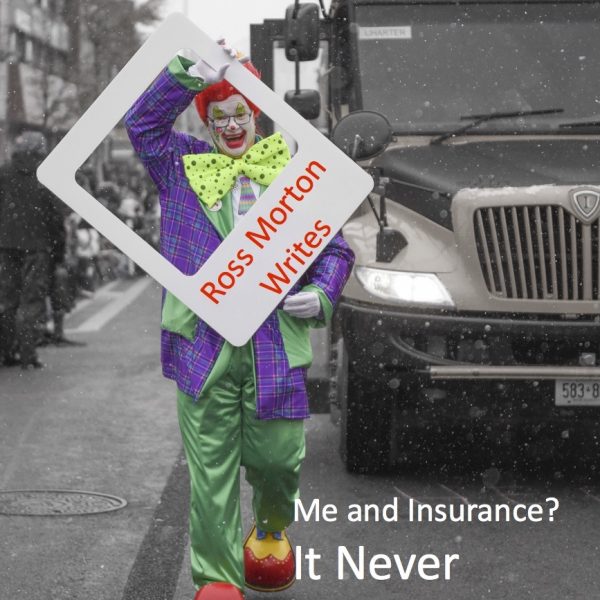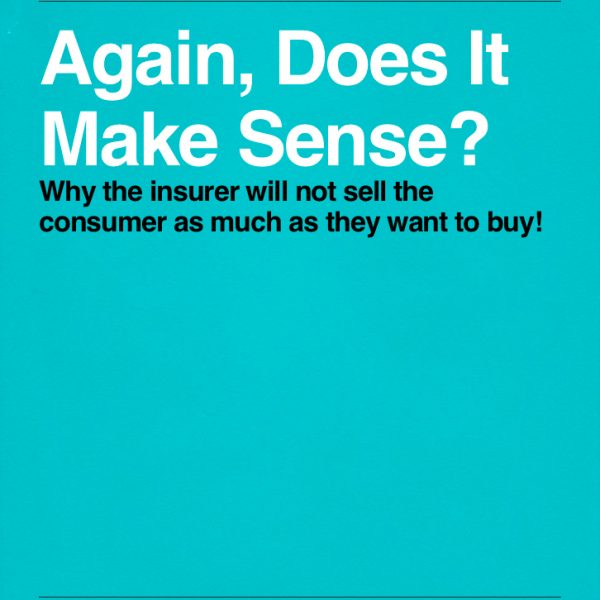I delighted my precious daughter a unique way when she was an infant and toddler. At six foot four inches, I would swing her through an arch, initiating well above my up-stretched arms down to safely above the floor. Emily would become a profusion of howls, giggles and smiles and always asked for more. Children grow, gain length and acquire accoutrements that befit a toddler. The accoutrement one day were shoes which were more akin to army issue boots.
On that ill-fated day as I arced my Emily from near ceiling height to the intended near floor position, my life was about to change both temporarily and permanently. Emily curved her body inwards by bring up her legs. The ensuing collision of Emily’s army boots to my most vulnerable parts was akin to watching neutering back on the farm (my grandfather did it then with two bricks).
I had a speaking role to play at an industry function and I had to adapt. Baggy pants, a stool to lean on and an MC who allowed me to remain upright and not moving made the day bearable and the audience none the wiser. Circumstance change and thus we adapt.
Has our industry adapted? It is a question that would draw many to both sides in a debate. “Yes” is obvious since times have changed and thus we must have changed. “No” is just as obvious since as life insurers we still struggle with paper, distribution, communication, blood and urine, and reliance on archaic rules that some would argue are totally counterproductive. As for me, I sit in the middle and which way I lean depends on my mood or how repetitive the day has been. Good mood equals adaptation. Bad mood or just more of the same equals status quo.
Banks outsource the loan function. Yes, there are hundreds of banks in the U.S. who use one company as their loan approver and call answer service. Here you have a third party outsourcer who is given the key to the vault to distribute a bank’s cash. How trusting and practical. Handling the telemarketing and loan approval is a skill set steeped in technology and training that many a small bank can ill afford to do internally but tasks that can be handled with awesome success using outsourcing.
Banks outsource back office cheque processing, credit card processing, computer networks and only “The Maker” (and perhaps Paul Martin) knows what else. For years, banks have realized that the real back office function is a noncompetitive area and one that excels with volume. The global sharing of ATM networks is another example of “let’s work together to make the world a better place” (violins and harpsichord, please).
Not a year goes by that we do not hear or read about a new cooperative venture within the banking community. I read somewhere that even the proposed mergers were initiated by such altruistic motivation. (Insert Hallelujah chorus here.)
Have we as life insurers really adapted to our environment? We lowered the price to make agents and brokers sell more. Some, and I emphasize some in order to retain my honorary sales diploma, brokers adapted by re-writing the inforce to take advantage of lower prices and have enough sales to survive. Could a conscientious broker knowingly not offer a lower price to the valued customer as it arrives on his doorstep?
We each lowered our price to make sure none of us was overcharging whereas the banks’ direction with service charges was just the opposite. How come we always do the opposite and receive the downsides for our efforts? If we always draw the short straw, maybe it’s time to change who is picking our straw.
Each of us has our own forms for everything because it is to each of our company’s competitive advantage to retain these unique marketing tools. Why? I need to be convinced that this is a good thing, and not by Martha Stewart. Soon the trees in my yard will be sacrificed so the paper from them can reside in the trunk of some broker’s Sportute or recycled into an egg carton.
The generic application, like all standard forms, is a good idea. Unfortunately the nuances of our legal staffs and marketing departments or some other power greater than I, created a revenue stream for BC’s paper industry until the Asia Pacific economy picks up. Did it fail because it was not the brainchild of some company president or because we do not need the cost savings and uniformity within our industry?
Does the known HIV positive consumer antiselect more than the cancer riddled or the chest pain sufferer? Should we in 1999 remain so strongly mired in the antiselective label on HIV, yet assume every other walking impairment is less risky and also more prone to having carriers be so forthright? Yes, when the HIV epidemic hit the consciousness of the world’s population, it was labelled the potential “bankrupter” of the life insurance industry.
That did not happen! In fact, we are doing quite well, thank you. I know of no company that has had bad mortality on its 1983 through 1985 business when we were most vulnerable to antiselection. Should we now adapt to the filing cabinet full of data that says HIV has a rather predicable course and is not a precursor of instant death and a life insurance claim?
We need to manage our distribution. We need to ascertain who at the public end of our chain of command is doing us a disservice by bringing discredit to broker, company and industry. The fremescent band of brokers, MGAs and company marketing leadership see the need to have an “information bureau” that tracks our distribution and identifies the bad apples. Will our leadership adapt to the need for this and approach it in a bipartisan fashion? The alternative perhaps is to wait for the other financial service vendors (mutual funds, stocks, etc.) to build the infrastructure and then we could ask to be a member.
We have many opportunities to adapt. Quality organizations adapt early and with ingenuity. But how we adapt at the beginning of a trend versus how we do so after the horse has fled the barnyard is entirely different. Building a more innovative retaining device initially gives us an opportunity to manage change. In so doing, we become less of a victim of change and more an active, contributing participant who has some control in the matter.
Oh, by the way, the temporary change caused by my collision of the army boots was extreme swelling. Immediately after the industry meeting, I eased the discomfort and eventually returned to normal by soaking in the salty waters off Barbados. The permanent change was the suspension of further arcing of my daughter from the ceiling to floor. We both adapted successfully.

